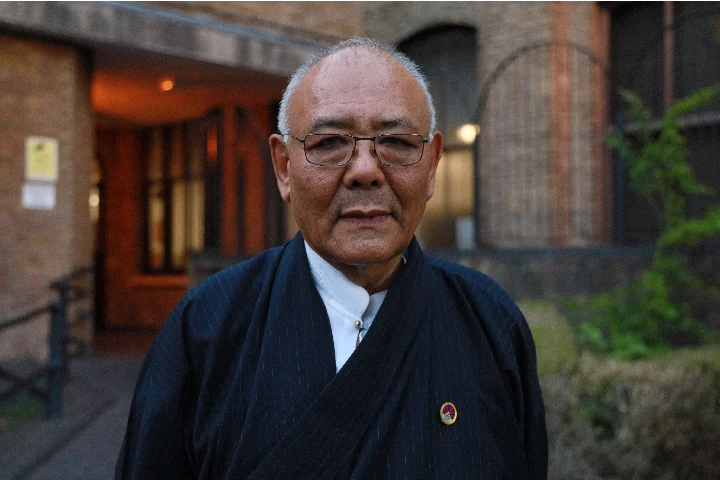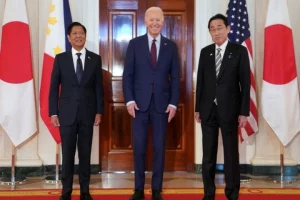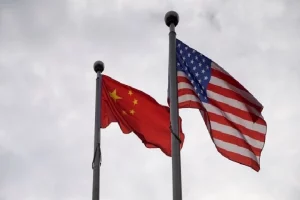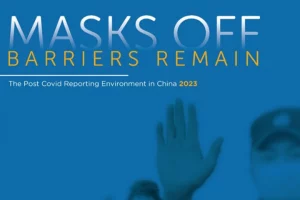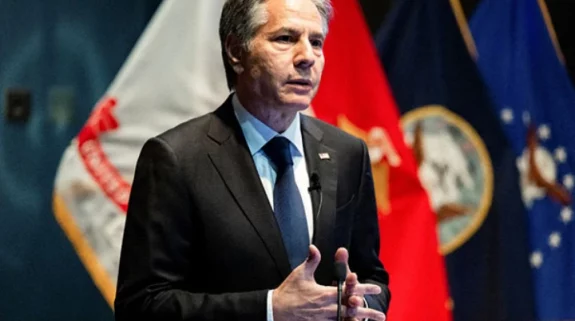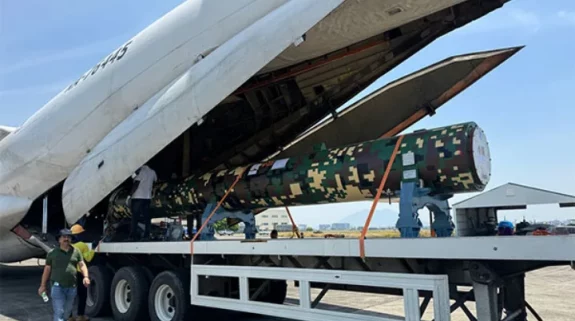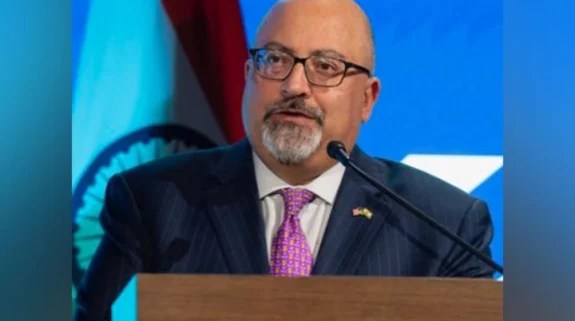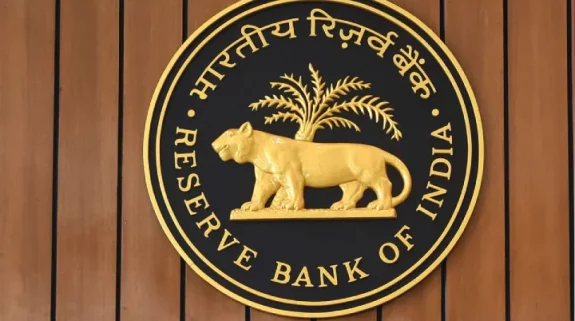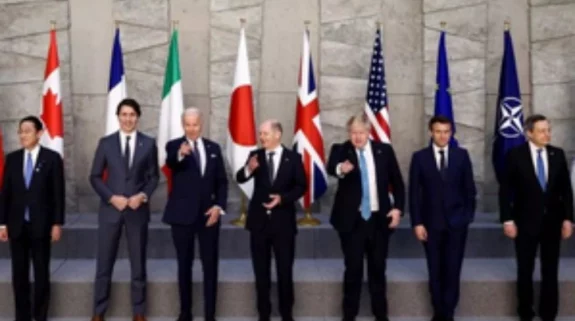The US is squeezing China over its crackdown on the Tibetan way of life by denying the community its right to practice its religion, culture and language. A few days back US lawmakers introduced a bipartisan legislation that rejects the Chinese claim that Tibet was a historic part of China.
Since at least one-and-a-half years the US has been advocating that Beijing needs to re-start talks with the Dalai Lama which Beijing had suspended many years back. The US support to the beleaguered community battered by the Communist Party of China (CPC) has given a boost to the Tibetan struggle worldwide.
With important moments popping up regularly in the Tibetan calendar lately, India Narrative catches up with one of Europe's top Tibetan leaders—Sonam Frasi, from the Office of Tibet, London. Frasi says that the Tibetan campaign is striving hard to document with irrefutable evidence from Chinese imperial records that Tibet was never a part of China thus exposing one of its biggest lies.
Excerpts from the interview:
IN: Has the Tibetan Policy and Support Act of 2020 (TPSA) passed by the US Congress made a difference to your campaign?
Frasi: The US is very much in support of Tibet. Within this law, there are certain work that the US executive must perform. The officials have to report to the US Congress about the progress they have made to restore the dialogue between the Dali Lama and China. Secondly, under this act the officials have to give a six-monthly report on what they have done under the provisions of the act.
Now as you see, the US plans to pass another law.
Over the past 15 years extensive studies by academicians, lawyers and sources in China are investigating the Chinese claims that Tibet has always been a part of China. At least two to three books have been published on the subject. The Tibet Brief 2020 also has been published. A retired professor from Hong Kong, who is now living in the US, has been scrutinising Chinese imperial records to find out when the China government laid claim over Tibet.
Through all of this, what we have found is that till the time the Communist Party of China (CPC) took over China in the 1949, there was no mention in Chinese imperial records that Tibet was a part of China.
With this evidence, we are currently working on two issues—that the Tibetans are entitled to their historical rights and hence the restoration of Tibetan independence is an option available to the Tibetans. The other issue we want to put in international records for all times is that Tibet was never a part of China as evicence in their imperial records.
As recently as 23 June 2022, the US Congressional Executive Committee on China had a hearing on whether Tibet was a part of China as Beijing claims. We have given documents to the Congress to the effect that Tibet was never a part of China before 1950.

Sonam Frasi (second from right) with the UK-based Tibetan leaders at the Dalai Lama's birthday ceremony in London (Photo: Rahul Kumar)
IN: Has China always maintained that Tibet was a part of the mainland?
Frasi: We were an independent country till 1950 but the question of Tibet was always there. In 1914, the British rulers in India, the Tibetans and the Chinese held a tripartite meeting to settle the boundaries between Tibet and India and also Tibet and China. The McMahon line came up as the border between India and Tibet but no settlement of the boarder was reached between Tibet and China. Though it was an international agreement, China, after occupying Tibet, said that it was signed by a regional authority (Tibet) which did not have the power to sign the agreement.
Though China did not agree to Tibetan independence in 1914, it did accept Tibetan suzerainty till this time. Because the British government was a party to this agreement, we are working with the British foreign office regarding this.
IN: How bad is the situation for the common Tibetan under the Communist Party of China (CPC)?
Frasi: Well, it will take me a year to explain how the bad the situation is for the Tibetans. The CPC is following Xi Jinping’s policy of Sinicization—making everything Han Chinese.
Within this umbrella, they want to eliminate any reference or teaching that relates to the Dalai Lama and religious figures who are based in India. The CPC does not allow people to keep pictures or videos of the Dalai Lama.
The Chinese randomly take mobiles phones from ordinary Tibetans to search for the Dalai Lama’s photos to punish them. By doing so, they are trying to cut the roots of Tibetan Buddhism in China.
Under this policy, Beijing is also assaulting our language and culture. Tibetan children between the ages of 6-18 are forcibly sent to a boarding school where they are taught only Chinese. They have very little interaction with family and the Tibetan society as they may visit home only on the weekends. The entire thought process is geared towards making the Tibetans similar to the Chinese.
Lastly, China is encouraging a huge migration of Han Chinese to Tibet. The PLA has been given incentives to settle in Tibet. People from mainland China are being provided business opportunities to come to Tibet. The Tibetan population is now becoming more and more Chinese.
China also passed a law in January 2021 to encourage inter-racial marriages in Tibet under which Chinese officials are given special recognition if the numbers of inter-racial marriages in their districts go up. The CPC has launched a full attack to dilute the Tibetan identity completely.
IN: Why does the Dalai Lama’s birthday mean so much to the Tibetan community?
Frasi: You see, his birth itself is significant. The Dalai Lama’s birthday gives us an opportunity globally and individually to wish him a long life and follow his guiding principles.
His holiness is important for the future of Tibet as he is totally devoted to a solution through conflict resolution. The way forward for the Tibetans is what the Dalai Lama has said—we are ready to live under the Chinese constitution as long as we are guaranteed a robust autonomy under a legal binding and international instrument or treaty.
IN: Are you saying that the Tibetans will settle for partial autonomy, 'the middle path', as the Dalai Lama advocates so often?
Frasi: It is like this—we work under his Holiness's guidance. Since 1950 China has occupied Tibet through an illegal invasion and robbed the sovereignty of our country.
To resolve the conflict through non-violent means the Dalai Lama's 'middle path' gives us an opportunity. Under this the Tibetans are no longer seeking a restoration of Tibetan independence, but we do not accept the total assimilation of Tibetan religion, culture and language into Chinese.
Under these two extremes, we seek a peaceful path for the preservation of our culture, religion, language and way of life though the ‘middle path’.
Read More:
Tibetans angered by centenary celebrations of the CCP, protest outside Chinese embassy in Delhi
Covid restrictions force Tibetans in Delhi to hold low key celebrations for the Dalai Lama
(India Narrative spot report from London)






